27.03.2025

The market volume of digital assets in Europe will reach 1 trillion by 2025. And Germany’s share in this sector is 28%. According to Chainalysis, Germany is the second largest cryptocurrency economy in Europe.
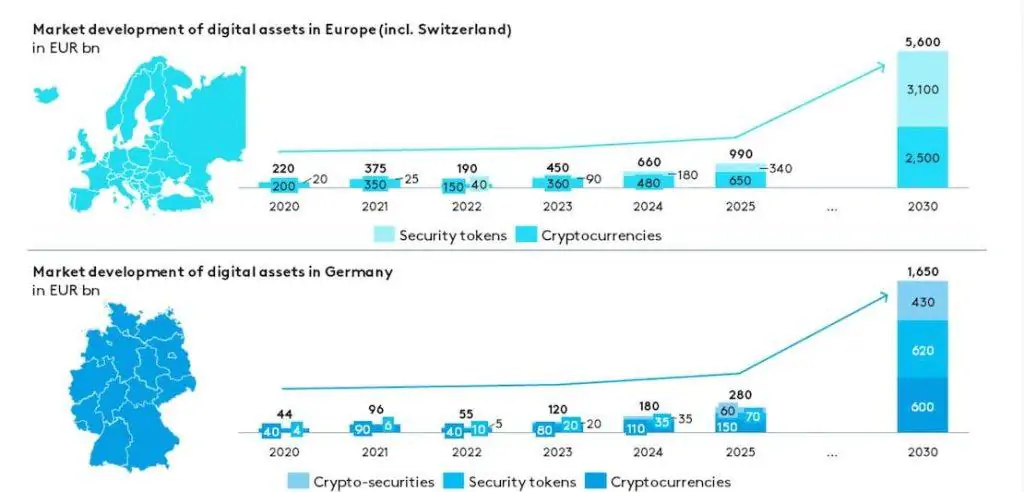
Which country has the lowest crypto tax?

Singapore is a haven for all crypto owners. This country has no Capital Gains Tax, which means that individual investors and companies are free to sell or trade crypto as they don’t have to pay it.
Cryptocurrencies have become very popular in Germany. According to Statista, the average crypto market turnover in the country is expected to reach $1.9 billion by 2025.
Triple A’s research found that 4.9 million people, or 5.8% of the total German population, owned cryptocurrency at the time. Now the numbers could be even higher.
The majority of owners are in the 25-44 age group (67%), which means that the most active age group is highly interested in crypto technologies.
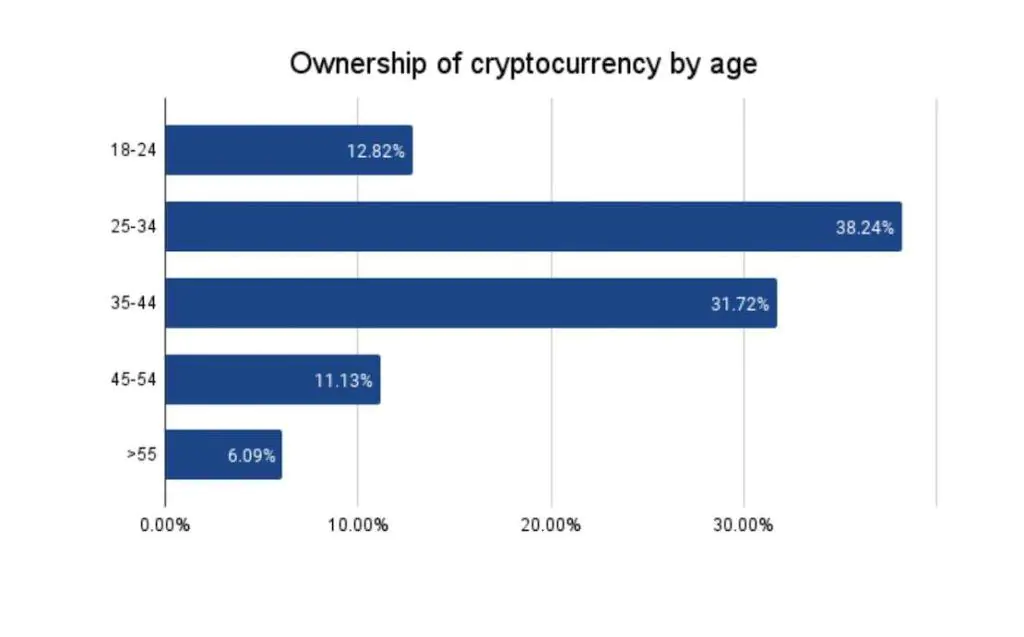
35% of German crypto holders use digital assets for purchases, and 72% of these purchases are more than €100 per month.
Cryptocurrency is therefore in high demand in Germany. Moreover, this country is favourable for crypto investors thanks to its comparatively low tax rates and friendly crypto laws. In this article, we’ll look at all the possible taxes you might have to pay for your crypto activities in Germany.
Is crypto allowed in Germany?

Yes, crypto is fully permitted in Germany. However, you’ll have to pay taxes if you use any kind of crypto. Germany is one of the best countries for the crypto industry because digital assets are listed as private money by the German Federal Central Tax Office.
This means that you won’t be taxed on crypto for over a year, and all your earnings under €600 are tax-free.
However, there’s also income tax that applies in other cases. For example, if you mine, bet or get paid in crypto, you’ll pay income tax.
How is crypto taxed in Germany?

There are a number of taxes that apply to your crypto assets in Germany. As crypto is considered private money, it is subject to individual Income Tax rather than Capital Gains Tax.
When you sell your crypto, the rules may change depending on how long you’ve held the crypto you’re now selling. If you’ve held your crypto for less than a year, you’ll pay taxes called Income Tax.
This includes selling your crypto for EUR (or other fiat currencies), exchanging it for another cryptocurrency, or using it to pay for goods and services.
But if you have a net gain of less than €1000, there’s no need to file a tax return. However, if you hold your crypto for more than a year, you can sell any asset for free. Mining or staking profits are also subject to income tax.
Now let’s take a look at all types of income tax rates in Germany. According to the local law, the German Income Tax rates for the fiscal year 2024 to be reported in 2025 are as follows:

In addition to Income Tax, you’ll also have to pay taxes – Solidarity Tax (Solidaritätszuschlag or ‘Soli’), which is a percentage of all individual income taxes.
What are the crypto Income Tax rates in Germany?

In Germany, short-term cryptocurrency expenses are subject to individual income tax. Moreover, all your crypto holdings are not subject to tax at all if you have held your crypto for more than a year.
Now let’s look at some nuances.
Crypto holdings under €600 EUR
German law considers cryptocurrency to be private assets or “private money”. This means that although businesses cannot accept crypto as legal tender, any short-term capital gains under €600 are tax-free.
This rule is based on Section 23 of the German Income Tax Act (EStG) on speculative private transactions. You can declare all your crypto gains on the same income tax forms as your salary and other income.
For example, you bought €500 of BTC. The price goes up and you sell your BTC for €700. Your income won’t be taxed if your total gains don’t exceed €600 within a year.
Crypto holdings over €600
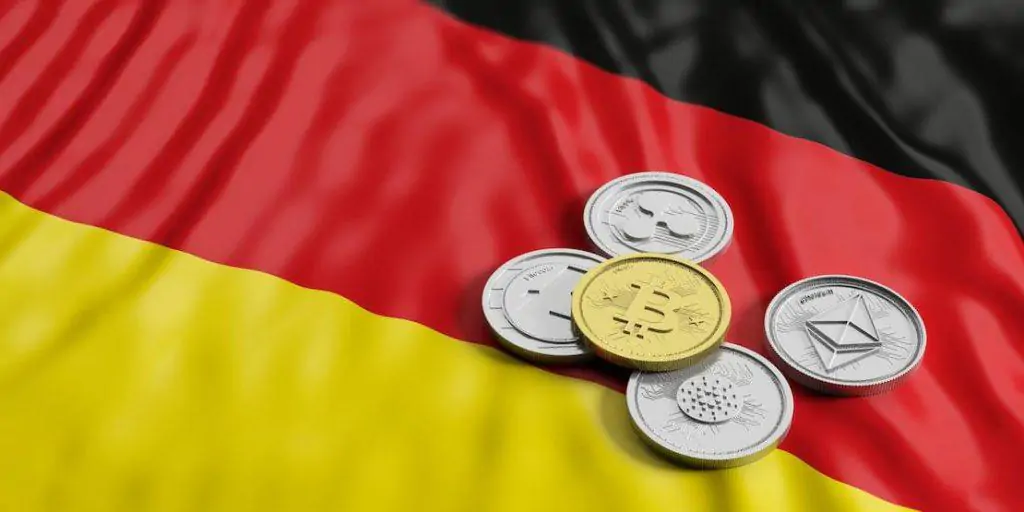
If your total profit is more than €600 and you’ve held your crypto savings for less than a year, it will be taxed as income according to Section 22 of the Income Tax Act, regardless of which operation you performed (trading one cryptocurrency for another cryptocurrency or trading crypto for fiat currency).
For example, if you bought $1500 of BTC and sold it five months later for $2400, your $900 will be taxed as ordinary income according to your tax bracket.
However, if you’re trading futures or swaps, these will be considered financial instruments, which means it will be quite difficult to offset your gains or losses against your passive crypto investments.
Long-term crypto trading
Holding crypto for more than a year means there’s no tax liability on your profits. This means that any increase in value is tax free.
For example, if you bought $1500 of BTC and sold it a year later for $2400, your $900 income won’t be taxed.
General DeFi crypto taxes in Germany

Earning new tokens within the DeFi ecosystem (such as DeFi protocols) is considered additional income by the BZSt. Therefore, they are subject to Income Tax if you’re above the additional income threshold of €256.
Trading value-accruing tokens
Many DeFi protocols issue LP tokens instead of direct rewards/bonuses. These liquidity pool tokens grow in value as your capital in the pool earns rewards. The profit is only clear when you trade back LP tokens to withdraw your funds.
If the added assets are held for less than a year, consider it a short term trade. In this case, profits will be taxed at 100%. If held for more than a year, it’s tax free. The same applies to selling LP tokens – if held for less than a year, gains are taxable; if held for more than a year, they’re tax-free.
Example
In January you buy 1 ETH for €1500. In June (less than a year later), you deposit ETH into a DeFi liquidity pool and receive LP tokens.
In December, the price of your LP tokens increases and you trade them back for $2000 in ETH and rewards.
As you deposited ETH that you’ve held for less than a year, this is a short-term gain of €500 (€2000 – €1500) and is subject to Income Tax in Germany.
What if you bought the ETH more than a year ago? In that case, the €500 profit would be tax-free.
The same applies to LP tokens: if you held them for less than a year before trading them back, the gain may be taxed. If held for more than a year, it would be completely tax free.
NFT taxes in Germany
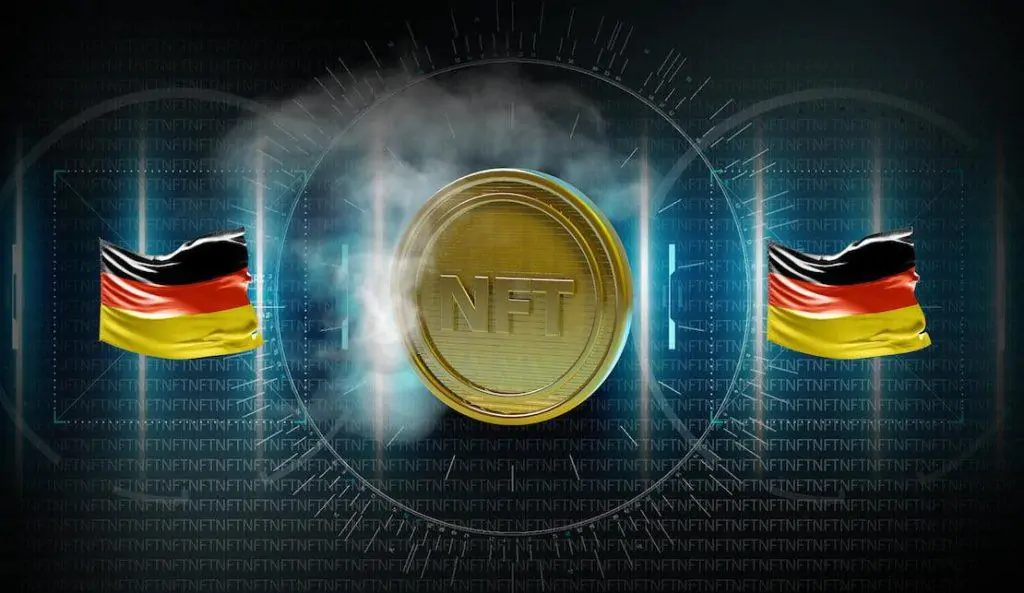
NFT taxes in Germany It doesn’t matter what you do: sell, swap or trade your NFT asset. It will still be subject to Income Tax if it’s less than a year. If it’s more than that, it’s tax free.
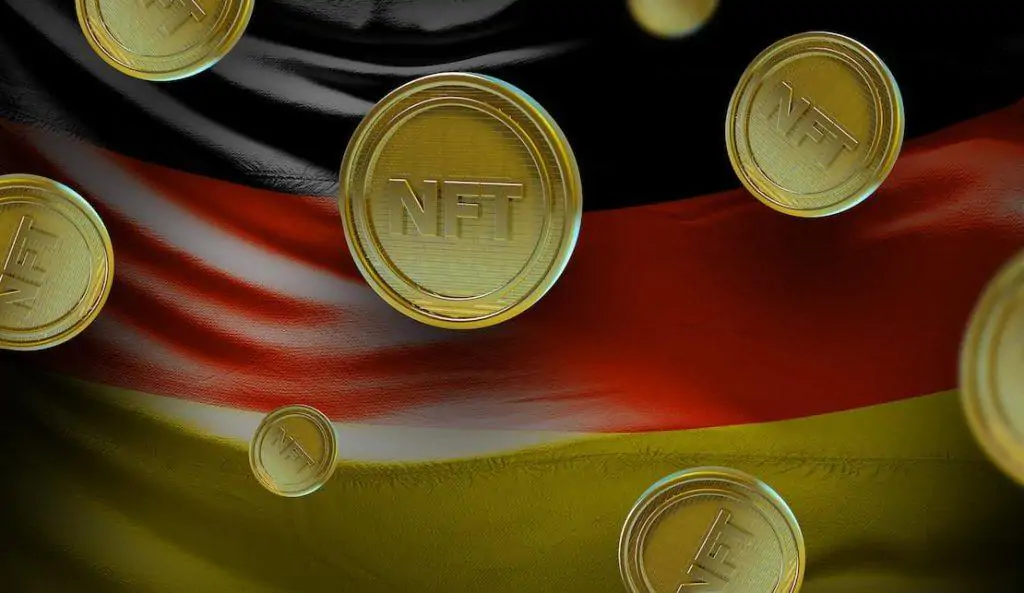
There’s also Trade Tax if you’re an artist and you mint or sell your won NFTs. This is considered as income from artistic activity or commercial income.
Airdrops crypto taxes
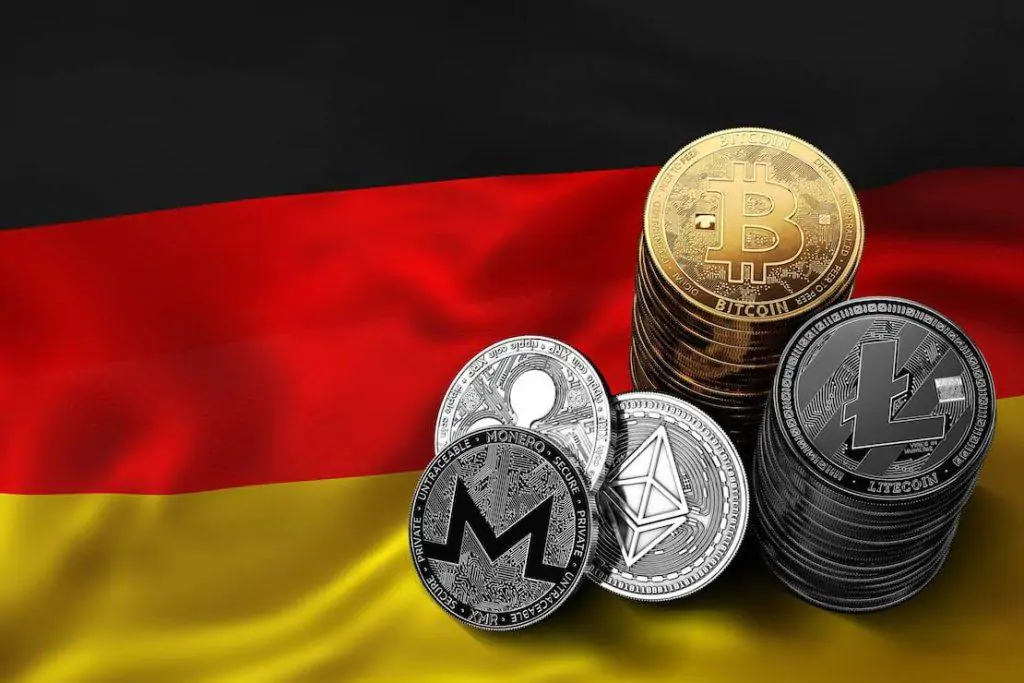
Crypto airdrops can be taxed in Germany, but it depends on how you received them. Somwtimes they are tax free.
If you received the airdrop without doing anything: Private gain is often considered tax-free at the moment you receive it.
However, if you sell the airdropped tokens within a year, your gain will be subject to Income Tax as a speculative gain (according to §23 EStG).
If you hold the tokens for more than a year before selling, the gain is usually tax-free.
If you received the airdrop as part of a service or activity (staking, promoting, signing up), it’s treated as additional income and you will pay taxes at the time of receipt as other income or business income, depending on your status.
Note that if you sell these tokens, you may also be subject to Capital Gains Tax if they have increased in value.
Example

You receive 100 tokens via airdrop, and all you have is a wallet. So you have done nothing. Value at receipt: €0.50 each.
A year later you sell them for €1. As you did nothing to earn them and held them for over a year, the €50 profit is tax free.
If you received the same tokens in exchange for signing up or betting, you’d be taxed on the €50 value when you received them, and then again on any gain when you sold them later.
Bounties crypto taxes
Crypto bounties = taxable income. If you receive crypto as a reward for performing a task (e.g. posting on social media, reporting bugs, translating content, promoting a project), it’s considered payment for services. Thus, they are usually not tax free.
Therefore, under German tax law, the value of the crypto is taxed as income at the time you receive it (either as self-employment income or other income, depending on your situation).
The income is subject to your personal income tax rate. You must declare the market value in EUR at the time of receipt.
What happens if I sell the bounty crypto later?
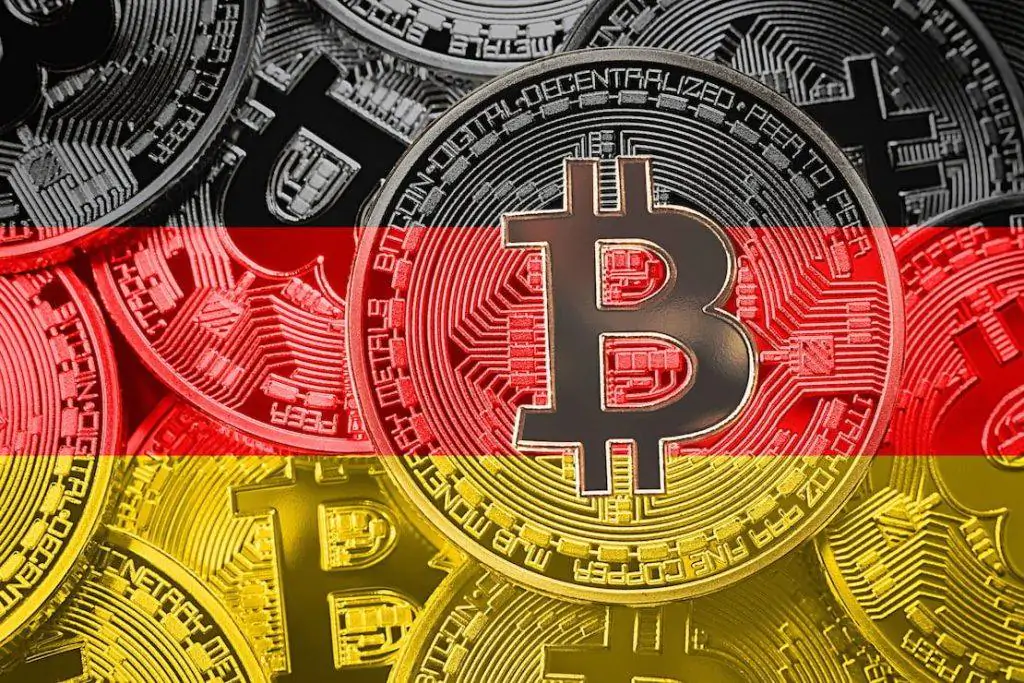
Any increase in value after receipt may trigger Capital Gains Tax (speculative transaction). If you sell within 1 year, the gain is taxable. If you hold for more than 1 year, the gain is tax free.
Example
You receive 500 tokens from a bug bounty. On the day you receive them, they’re worth £2 each, so you report £1000 as income.
Three months later, you sell the tokens for €3 each, making a profit of €500. As you held them for less than a year, the €500 profit is also taxable.
Mining crypto taxes in Germany
According to Triple A research, bitcoin is still the most popular cryptocurrency to hold in Germany.
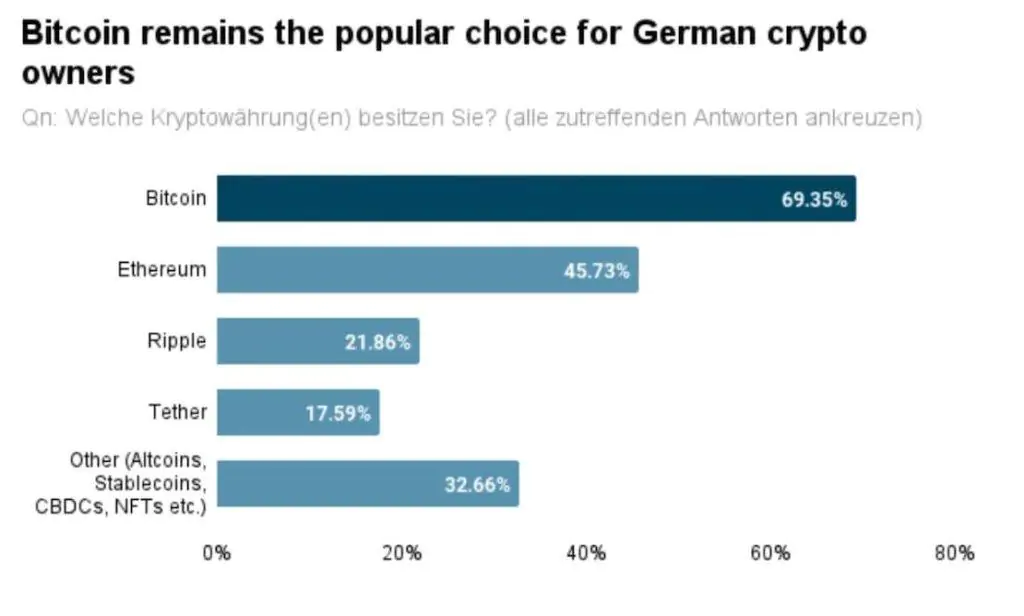
69.35% of respondents own digital gold. However, Dogecoin or Monero is also in demand in this country. The BZSt (Federal Central Tax Office of Germany) considers crypto mining revenues as additional income and subject to Income Tax. According to local laws, mining is a commercial activity and subject to Trade Tax.
That’s why you need to calculate exactly what you own.
Calculate the exact market value of your coins on the day you receive them in EUR. Add up the cost of electricity and equipment and subtract this to pay taxes at your normal Income Tax rate.
Staking and lending crypto taxes
Income Tax will also be paid when you sell any of your mining coins if you hold them for less than a year.
Income from stakes and loans is also subject to Income Tax. However, if you realize capital gains on your staking income, you won’t be taxed if you hold your profits for more than one year.
Originally, the staking period wasn’t clear and investors were a little confused.
They thought that they would have to pay taxes (Income Tax) on any profits from the sale of staked shares if these shares were held for less than 10 years.
The BZSt has now clarified that the holding period for stakes is the same – one year. After that, you can sell your digital assets for free, making long-term ownership very attractive for investors and companies in Germany.
Crypto taxes for businesses
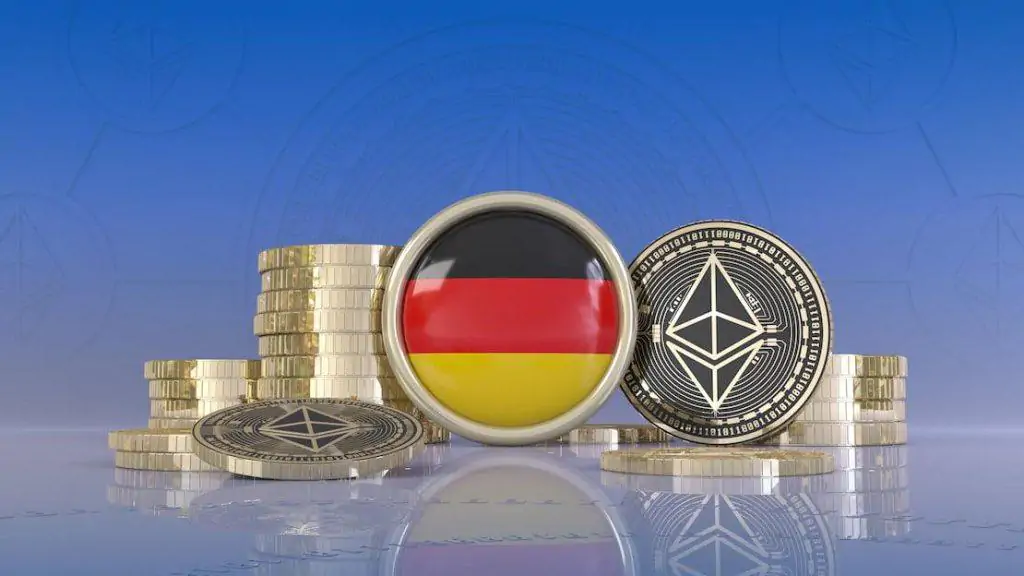
German companies are taxed according to the type of legal entity.
If it is a simple partnership, it will be subject to the same Income Tax as individuals plus an additional Trade Tax.
Limited liability companies, public corporations and other business entities are subject to corporate Income Tax and Trade Tax on their crypto assets.
So it’s important to consider the tax implications of your legal structure – especially if you’re a business or private investor planning to hold large amounts of crypto or engage in mining or staking activities.
However, there’s a big difference between taxes for companies and individuals.
For the former, there is no tax exemption for crypto held for more than one year.
All the specifics and additional details about crypto taxes in Germany for businesses can be found in Section 15 of the German Income Tax Act.
Accounting methods for crypto tax in Germany

To date, the First in First Out (FIFO) accounting method is the best way to determine the cost basis of cryptocurrency.
This means that when you sell crypto, the coins you bought first are considered to be the first sold when calculating your tax liability in Germany for tax authorities.
Example 1
In January you buy 2 ETH for €1000 each. In July you buy another 2 ETH for €1500 each (total €3000). The following January, one year after your first purchase, you sell 2 ETH for €4000.
According to the FIFO method, the first 2 ETH you bought for €1000 each are considered as sold. As you held them for more than a year, your profit of €2000 (€4000 – €2000) is tax free in Germany.
Six months later you sell the remaining 2 ETH for €3800. They were bought for €1500 each and held for only one year. As they have not been held for more than a year, your gain of €800 (€3800 – €3000) is subject to Income Tax.
Example 2
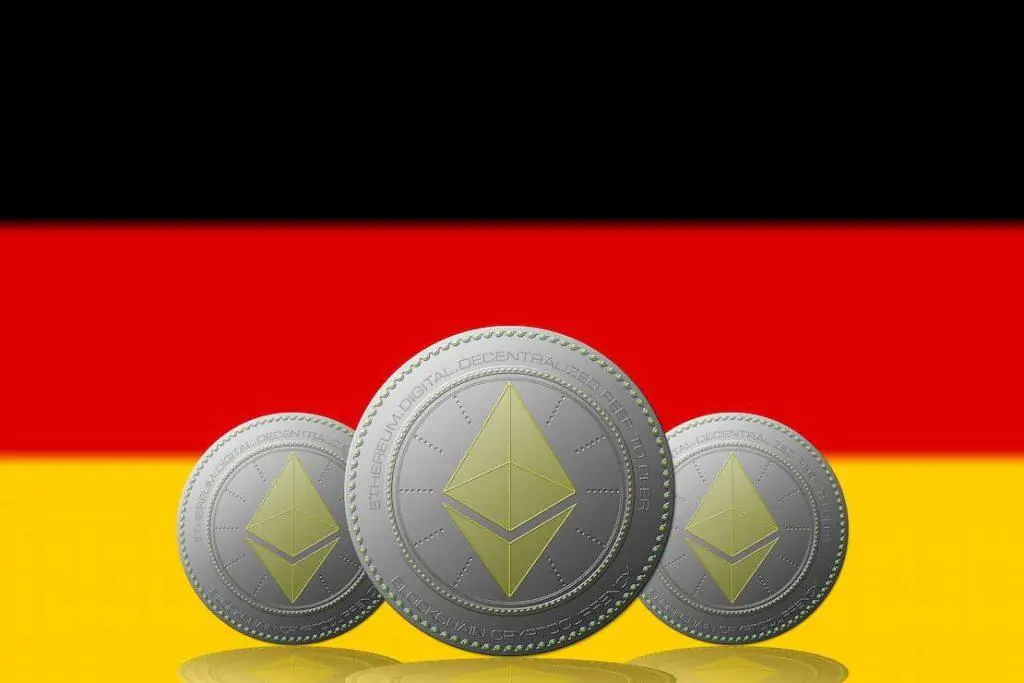
In March you buy 1 Litecoin (LTC) for $100. In September of the same year, you buy another 1 LTC for $120. The following February you sell 1 LTC for €200.
Using the FIFO method, the first LTC you bought in March for €100 is considered sold. As less than a year has passed, your gain of €100 (€200 – €100) is subject to Income Tax in Germany.
Four months later, in June, you sell the second LTC for €250. This coin has also been held for less than a year, so your €130 profit (€250 – €120) is also taxable.
How to avoid Capital Gains Tax in Germany?

The easiest way to keep your earnings tax free and to avoid Capital Gains Tax is to hold them for more than a year. That’s why it’s always better to play the long game.
Keep in mind that such a strategy may be too risky as the crypto market is too volatile and the holding period may affect the price of your portfolio.
However, you can reduce your risk by using a dollar cost averaging strategy.
This can help you to deploy capital slowly, buying a particular asset over a period of days or weeks.
This way, after a year or more, you’ll be able to take 100% of the profits from your crypto holdings, which won’t be taxed yet.
Moreover, some of the processes are not taxable in Germany.

Buying cryptocurrency with fiat money like EUR
Crypto transfers between wallets
Crypto transfers from exchange to wallet and vice versa
Charity (20000€ donations per year are tax free)
Hard forks and soft forks
Conclusion

It is crucial to learn the taxes before entering a new sphere, especially crypto. Learn the German Income Tax Act to use the exemption limits.
Use a thorough strategy with your DeFi investments. DYOR the market to reduce losses. Donate crypto to your spouse if they’re in a lower tax bracket.
If you’re mining crypto, make sure you’re saving on gas, tax software preparation costs, and mining expenses.

